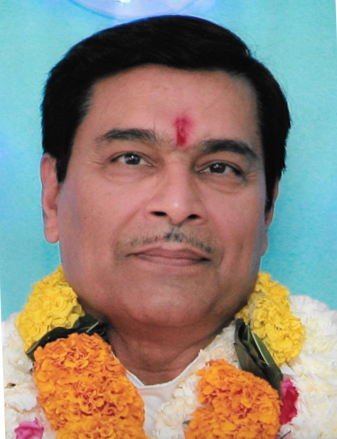From a satsang with Pt. Balram Persad, Spiritual Leader, Om Shakti Mandali
In the Aranya Kaanda of the Shree Raamcharitramaanas, Sage Narad wished to ask a boon of Shree Raam, but he was hesitant to do so. Shree Raam eventually prevailed upon him, saying, “ Narad, there should be no hesitation; whatever is in your mind, ask. Once you are deserving of it, I shall give it to you. O holy one, there is nothing in this whole world that I cannot give to my devotees.” In this conversation, Shree Raam displays His quality of generosity and His state of vairaagya or mental detachment, whereby one is unattached to worldly objects.
Mental detachment is a necessity for devotees in this world of distraction and aversion. Often, people believe they can leave the village, city and even civilisation and live in the forest or some other secluded area, and, having given up all materialism, they can then devote themselves to devotion. This is one form of devotion; it means turning the mind inward. As long as the mind is turned towards external objects, cravings appear in the mind. If I turn my mind inwardly, antarmukh vritti, then I can begin the journey on the path of vairaagya or true spiritual dispassion. Hinduism tells us to begin within; within us is both Raam and Raavan, the developmental and the detrimental, and we must place our attention on that which will advance us spiritually.
We know that everything in this world is transitory and perishable. It is a world of birth and death, union and separation. As such, we are asked to be like the lotus flower. It is rooted in the mud, the stem grows out of the water and the flower grows above. The world, like the mud of materialism, is necessary for our sustenance but it must be transcended in order to experience the infinite. For example, we can see a murti or picture of the Lord but in order to experience his cosmic, universal form, we must receive divya drishti, his Divine vision, as he bestowed on Arjuna.
Vairaagya is practised by everyone to a varying extent. As a student who wishes to be successful in his or her examinations, one must forego television, entertainment and sleep. As a worker, if we wish to be financially stable, we must give up expenses which are superfluous. As devotees, to experience spiritual enlightenment and bliss, we must display a sense of commitment, discipline and perform devotional activities. We renounce the comfort of our homes to attend services; or we renounce forms of entertainment so that we can listen to religious kathas. We all practise vairaagya in one form or the other regularly.
However, for vairaagya to be more meaningful to us , we must practise it at a deeper level. The gopis of Vrindavan would follow Shree Krishna wherever he went because their happiness resided in his presence. The Devtas manifested as monkeys and bears so that they could be of service to Shree Raam on his earthly mission. Lakshmanji and Seeta Devi renounced their home, parents and the royal comforts of Ayodhya so that they could follow Shree Raam into the harsh existence of exile. As we progress spiritually, we realise that materialism is not the source of happiness, and that we must go deeper, higher and be nobler in order to lead a more fulfilling and satisfying life. It is a logical progression towards a state of renunciation that we must all experience.
There are four stages of vairaagya:
- Yatmaana, where one begins to make an effort to control the mind that runs after worldly pursuits. It is a recognition of the experience of the impurities of the raving and restless mind.
- Vyatireka, where there is still material distraction but one has gradually begun to control the mind.
- Ekendriya, where the five senses are controlled. The focus is no longer on worldly objects, but there is still raag and dvesha, attraction and aversion, in the mind.
- Vasikaara, where the mind is completely restrained and free of raag and
We have all given up worldly objects in order to achieve some greater goal, from infancy to adulthood. Life should be one of control, Lord Krishna says, as a true yogi who controls the mind, body and senses. We worship Shivaji, who embodies the principle of mental detachment, to develop that significant quality within ourselves, which is necessary for achieving spiritual elevation and achieving Godliness.



